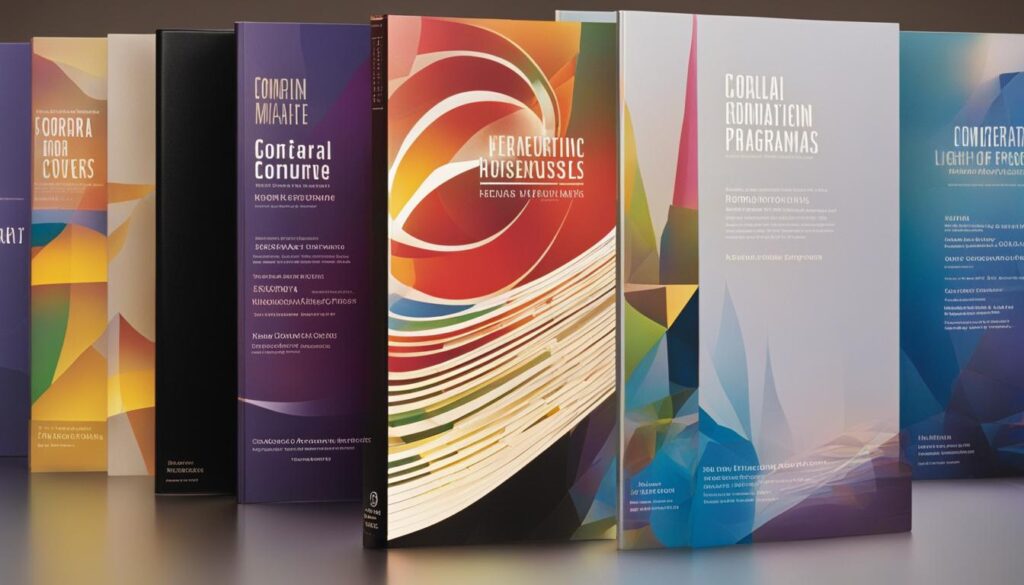Welcome to our comprehensive guide on the Bachelor of Choral and Ensemble Conducting program, also known as B.Choral & Ensemble Conducting. If you have a passion for choral music and conducting, this degree program is designed to provide you with the necessary skills and knowledge to lead choral and ensemble performances with confidence.
During this 3 to 4-year program, you will dive deep into subjects such as music theory, ear training, score reading, rehearsal techniques, and music history. You will have the opportunity to develop your conducting techniques, learn to analyze and interpret musical scores, and gain practical experience through participation in various choral and ensemble groups. Upon graduation, you will be prepared for a fulfilling career as a choral conductor, ensemble director, music educator, or vocal coach in educational institutions, community choirs, professional ensembles, or even establish your own choral groups.
So, whether you aspire to lead a renowned choir or shape the future of choral music education, the Bachelor of Choral and Ensemble Conducting program can be your stepping stone to success.
Key Takeaways:
- The Bachelor of Choral and Ensemble Conducting program is designed to train students in conducting choral and ensemble performances.
- It covers a range of subjects including music theory, score reading, rehearsal techniques, and music history.
- Students will develop their conducting techniques and gain practical experience through participating in choral and ensemble groups.
- Graduates can pursue careers as choral conductors, ensemble directors, music educators, or vocal coaches.
- Tuition fees for this program can vary depending on the country and university.
Program Curriculum and Key Components
The Bachelor of Choral and Ensemble Conducting program offers a comprehensive curriculum that is designed to equip students with the necessary skills and knowledge in the field of conducting. The program is divided into different years, with each year focusing on specific areas of study.
First Year
In the first year, students will be introduced to various foundational subjects that form the basis of choral conducting. These include:
- Music theory
- Ear training
- Choral conducting techniques
- Music history
Through these courses, students will learn the fundamentals of music theory, develop a keen ear for music, and acquire essential skills in choral conducting techniques.
Second Year
Building upon the knowledge gained in the first year, the second year of the program focuses on more advanced concepts and skills. Key components of the curriculum include:
- Advanced music theory
- Score analysis
- Choral repertoire
- Ensemble conducting
During this year, students will delve deeper into music theory, learn to analyze complex musical scores, expand their choral repertoire knowledge, and refine their ensemble conducting techniques.
Third Year
The third year of the program explores advanced topics in choral and ensemble conducting. Students will engage with subjects such as:
- Choral arranging
- Vocal pedagogy
- Advanced conducting techniques
- Performance practice
This year is focused on developing specialized skills in choral arranging, understanding vocal pedagogy principles, mastering advanced conducting techniques, and gaining insight into the nuances of performance practice.
Final Year
The final year of the program emphasizes practical experience and the integration of knowledge gained throughout the degree program. Key components of the curriculum in the final year include:
- Choral and ensemble performance
- Capstone project
- Internship
This year provides students with the opportunity to apply their conducting skills in real-world settings through participation in choral and ensemble performances. Students will also complete a capstone project, allowing them to showcase their understanding and expertise in a specific area of choral conducting. Additionally, an internship component enables students to gain hands-on experience and further refine their skills under the guidance of experienced professionals.
The Bachelor of Choral and Ensemble Conducting program’s curriculum is designed to provide students with a well-rounded education in conducting, covering essential areas such as conducting techniques, score reading, rehearsal techniques, and musical interpretation. Through a combination of theoretical knowledge, practical experience, and performance opportunities, graduates of this program are equipped with the skills necessary for successful careers as choral conductors and ensemble directors.
Career Prospects and Salary Expectations
Graduates of the Bachelor of Choral and Ensemble Conducting program have a wide range of career prospects. They can pursue careers as choral conductors, ensemble directors, music educators, or vocal coaches. They can work in educational institutions, community choirs, professional ensembles, or establish their own choral groups.
The salary expectations for graduates can vary depending on factors such as experience, location, and the type of organization they work for. Choral conductors and ensemble directors can earn an average salary ranging from $30,000 to $80,000 per year.
It is important to note that salary expectations can vary, and actual wages are influenced by market demand and other factors. To obtain more accurate salary information for specific jobs and locations it is recommended to utilize job search engines or consult relevant industry resources.
| Position | Salary Range (per year) |
|---|---|
| Choral Conductor | $30,000 – $60,000 |
| Ensemble Director | $40,000 – $80,000 |
| Music Educator | $35,000 – $70,000 |
| Vocal Coach | $25,000 – $50,000 |
These salary ranges are approximate and can vary depending on factors such as experience, qualifications, location, and the specific organization. Additionally, freelance choral conductors and vocal coaches may charge hourly rates or project fees.
Despite the variations in salary, a career in choral ensemble conducting can be fulfilling for those passionate about music and leadership. Remember, your dedication, experience, and skills play a crucial role in shaping your career prospects and salary expectations.
Selecting a Program and Conclusion
When it comes to choosing a Bachelor of Choral and Ensemble Conducting program, there are several factors that you should consider. Taking the time to research and compare different programs and institutions will help you find the best fit for your goals and aspirations. Here are some key points to keep in mind:
- Duration: Take note of the duration of the program. Some programs may be completed in three years, while others may take four or more years to finish.
- Tuition Fees: Consider your financial situation and be aware of the tuition fees associated with each program. Costs can vary depending on the country and university.
- Curriculum: Examine the curriculum offered by each program. Look for a well-rounded curriculum that covers essential areas such as music theory, score reading, rehearsal techniques, and conducting techniques.
- Key Components: Pay attention to the key components of the program, such as the emphasis on conducting techniques, score reading, rehearsal techniques, musical interpretation, and performance experience.
- Career Prospects: Explore the career prospects that graduates of each program have. Look for programs that provide opportunities for practical experience and offer connections to potential employers.
As you navigate the selection process, consider using resources like the uniRank World Universities Search Engine to explore universities offering the Bachelor of Choral and Ensemble Conducting program worldwide. Visiting official university websites and reaching out to faculty and department representatives can also provide valuable insights into the program and help you make an informed decision.
It’s important to note that the Bachelor of Choral and Ensemble Conducting program can serve as a stepping stone for further studies at the graduate level. Pursuing a graduate degree in conducting can open up additional career opportunities and allow you to delve deeper into your research interests.
Ultimately, selecting the right program requires careful consideration and research. By taking the time to explore your options and weigh the factors that matter most to you, you can find a Bachelor of Choral and Ensemble Conducting program that aligns with your passion for music and sets you up for success in your future career.

Conclusion
The B.Choral & Ensemble Conducting program provides a comprehensive education in conducting techniques, equipping students with the skills necessary to lead choral ensembles with confidence. Through the development of conducting, score reading, rehearsal techniques, and musical interpretation skills, graduates are well-prepared for successful careers as choral conductors, ensemble directors, music educators, or vocal coaches.
One of the program’s key strengths is its emphasis on practical experience. Students have the opportunity to participate in various choral and ensemble groups, gaining valuable performance experience and honing their skills in real-world settings. This hands-on approach prepares graduates to effectively lead and inspire choral ensembles, bringing out the best in their performers and creating memorable musical experiences.
If you are considering pursuing a career in choral conducting or ensemble directing, it is important to research and compare different B.Choral & Ensemble Conducting programs. Look for programs that offer a strong curriculum in conducting techniques, score reading, rehearsal techniques, and musical interpretation. Consider the practical experience opportunities available, such as participation in choral and ensemble groups. By carefully evaluating and selecting the right program, you can set yourself on a path to success in the field of choral conducting and ensemble directing.
FAQ
What is the Bachelor of Choral and Ensemble Conducting program?
The Bachelor of Choral and Ensemble Conducting program, also known as B.Choral & Ensemble Conducting, is a comprehensive degree program that focuses on training students in conducting choral and ensemble performances.
How long does the program typically last?
The program typically lasts for 3 to 4 years.
What subjects are covered in the program?
The program covers subjects such as music theory, ear training, score reading, rehearsal techniques, and music history.
What are the career prospects for graduates of this program?
Graduates can pursue careers as choral conductors, ensemble directors, music educators, or vocal coaches in educational institutions, community choirs, professional ensembles, or establish their own choral groups.
What is the average salary for choral conductors and ensemble directors?
Choral conductors and ensemble directors can earn an average salary ranging from $30,000 to $80,000 per year, depending on factors such as experience, location, and the type of organization they work for.
How can I select a Bachelor of Choral and Ensemble Conducting program?
It is important to research and compare different programs and institutions to find the best fit for your goals and aspirations. You can use the uniRank World Universities Search Engine to explore universities offering this degree anywhere in the world.
Can graduates pursue further studies in conducting?
Yes, graduates can pursue further studies at the graduate level to obtain a higher degree in conducting and expand their career opportunities.
What can I expect to learn in the Bachelor of Choral and Ensemble Conducting program?
The program teaches conducting techniques, score reading, rehearsal techniques, musical interpretation, and provides practical experience through participation in various choral and ensemble groups.
What are the tuition fees for this program?
The tuition fees for the Bachelor of Choral and Ensemble Conducting program can vary depending on the country and university, ranging from $5,000 to $30,000 per year.

